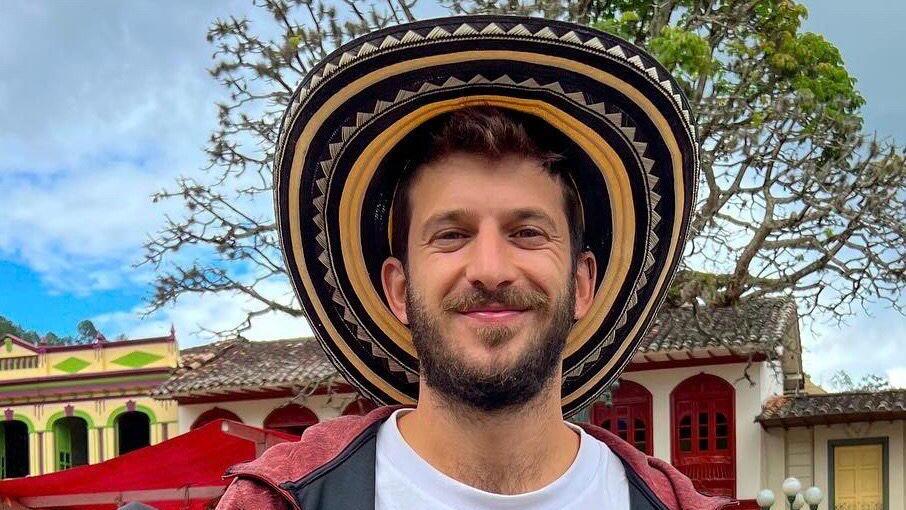A few days ago, a friend of mine who’s traveling in Colombia told me that while they were sitting in an evening gathering at a hostel with several people from different countries, they started talking about the situation in Israel. Then, suddenly, a European tourist raised his hand and began shouting, "Free Palestine! Free Palestine!" while rallying the others to join him.
More stories:
Very quickly, a collective chant began, making the Israeli national who was sitting with them feel like she might be in danger. Naturally, she didn't want to stay with them any longer.
Unfortunately, quite a few Israeli travelers abroad find themselves in similar situations these days. The situation many people around the world are familiar with portrays Israelis as war criminals and ruthless murderers who oppress the Palestinians who "only want to be recognized."
By the time the Israeli traveler manages to overcome feelings of guilt of disconnect from what's happening in the country, they find themselves surrounded by travelers from other countries who make sure to remind them they can’t travel peacefully when their people are supposedly killing Palestinians.
Many Israeli travelers are afraid to engage in conversations about the conflict or try and explain to their friends from other countries, whom they’ve been traveling with for a while, what’s really happening. Some of them feel that they lack the tools or knowledge needed to face this challenge.
In light of this, I put together a focused guide with recommended actions and general pointers to help with discussions about the war against Hamas.
Know your enemy: First and foremost, try to understand if the person in front of you is someone you can have a serious conversation with. How will you know? You can try to rely on your intuition. When you look at a person, it's relatively easy to understand if they’re someone who wants to listen or just throw accusations, labels, and regurgitate headlines they've seen on various news sites or Telegram groups at you.
Listen: The best way to explain something to someone is, first of all, to let them express everything they think about the topic. This way, we'll also better understand what they know, or more accurately, what they think they know, where they get their information, what their central claims are for vilifying Israel, and what beliefs or data led them to think they know the so-called truth about the situation.
Find a common topic: Every person in the world belongs to some group, community, or identity that defines them. Whether it's liberalism, feminism, a particular religion, and so on. When we can find one characteristic in the person in front of us that is somehow related to the situation, it’ll be easier for us to lead the conversation to concepts they’re familiar with and speak a language that aligns with our set of values.
For example, If I'm talking to a Muslim Dutch person who claims that Israel is cruel to Muslims in general, it's a good idea to tell them about Israeli Arabs who support the country and the IDF and even serve in senior positions in the military and police. In other words, emphasize there’s a distinction between Muslims as a whole and Hamas and Palestinians.
Share a personal story: Most of us were born, grew up, were educated, and served in the military in the country. Therefore, whether we like it or not, the Israeli story is our personal story. If we talk about the reality we've experienced in Israel, we can create a personal version of the situation that adds another dimension to the one-dimensional and generic narrative that our conversation partner gathered from news sites around the world.
Criticism is allowed: No one is perfect. Not even us, and it's important to make it clear rather than hide it. We don't have to agree with everything the army or the government does, and it's okay to include disclaimers in our conversation about Israel's policies over the years. In fact, this reinforces authenticity and shows the other side that we don't think we're entirely right, and that in reality, the situation is more complex than how it’s commonly portrayed.
Busting slogans: Usually, when talking to people who don't experience the reality we live in and only know it from a distance, you can easily spot all kinds of slogans and catchphrases that are common on social media platforms. When you examine them seriously, you'll notice they lack depth. For example, the slogan "Free Palestine!" - Okay, free it from whom? From Israel? In 2005, Israel gave the Palestinian Authority full control over the Gaza Strip, and then Hamas took over, assassinated political rivals, and has been in control of Gaza using military force since then.
Be confident: This may be the most important point. Enter the conversation with confidence, not because you're an ambassador of Israel, but because you're Israeli who lives in the country and knows the reality up close, much better than any European, Australian or American who thinks that reading some CNN or BBC makes them more knowledgeable than us about the conflict, or that if they define themselves as liberals and enlightened, then justice must inherently be on the Palestinian side.
Finally, I’d like to mention that last week, Israel’s National Security Council (NSC) recommended to the public to carefully consider planned trips abroad at this time and to avoid non-essential travel to countries under a travel warning, including Arab countries and countries close to Iran (Jordan, Egypt, the United Arab Emirates, and Azerbaijan).
- Ohad Levi is an Israeli tour guide who accompanies travelers during their first time abroad





